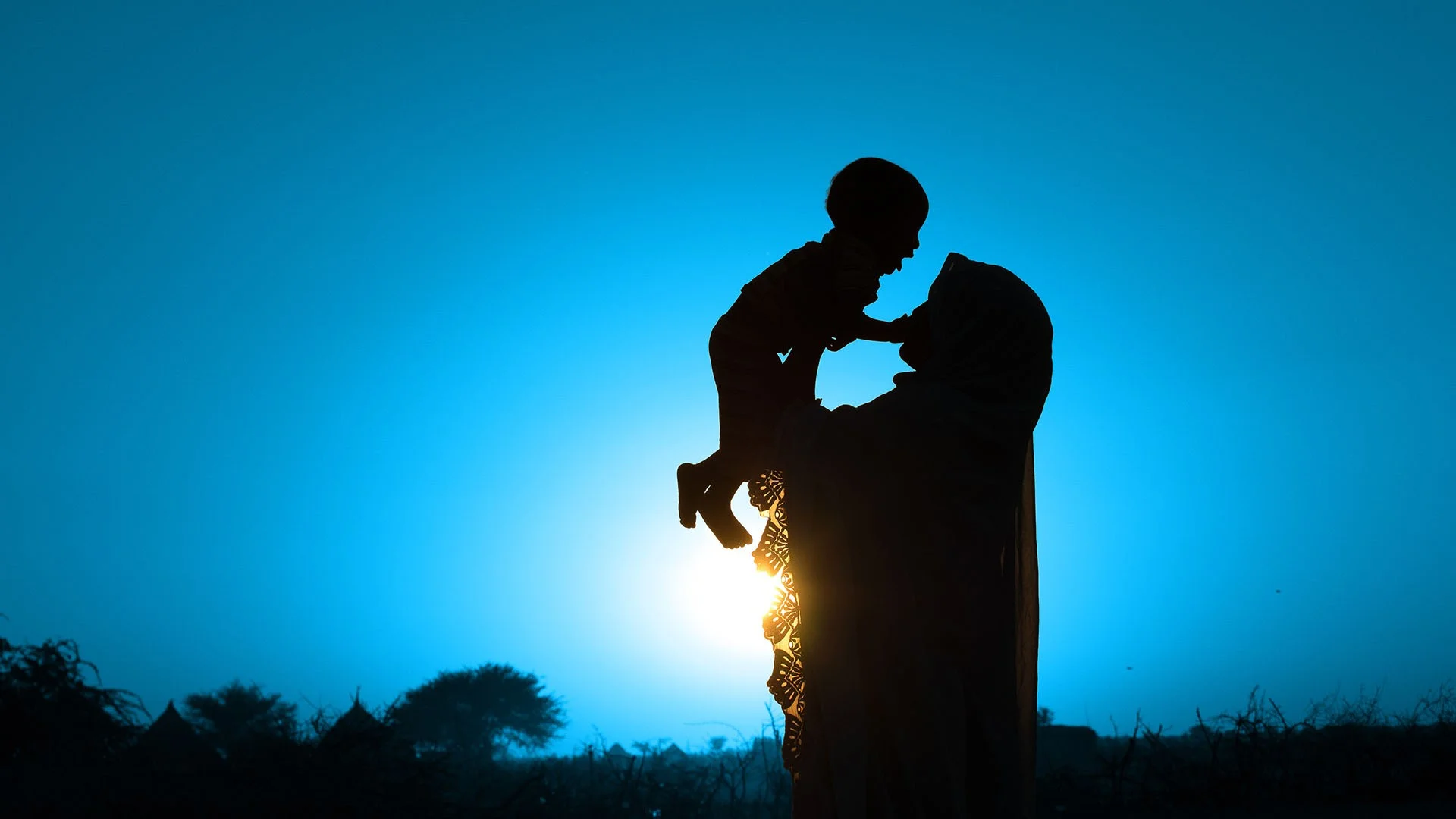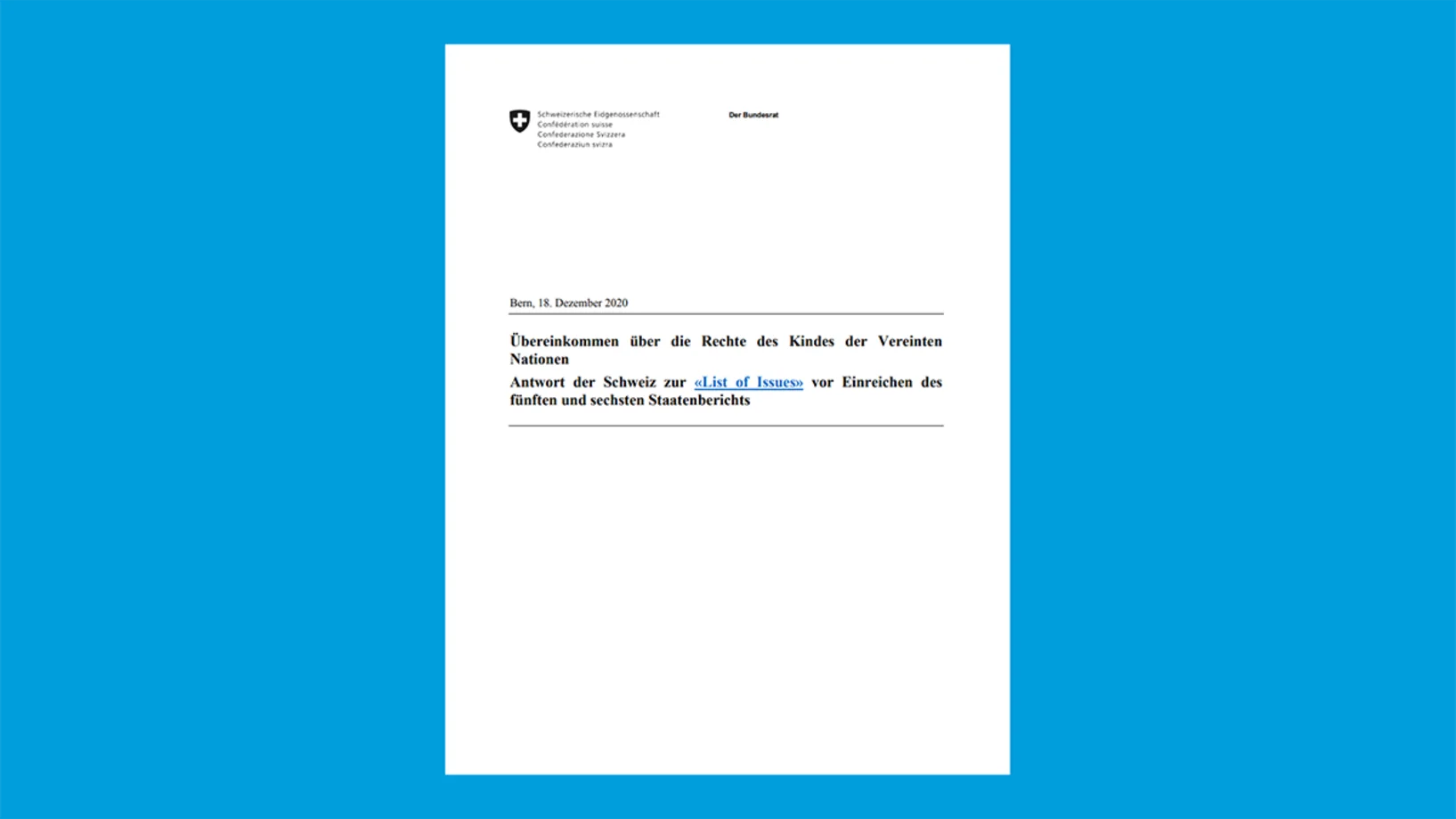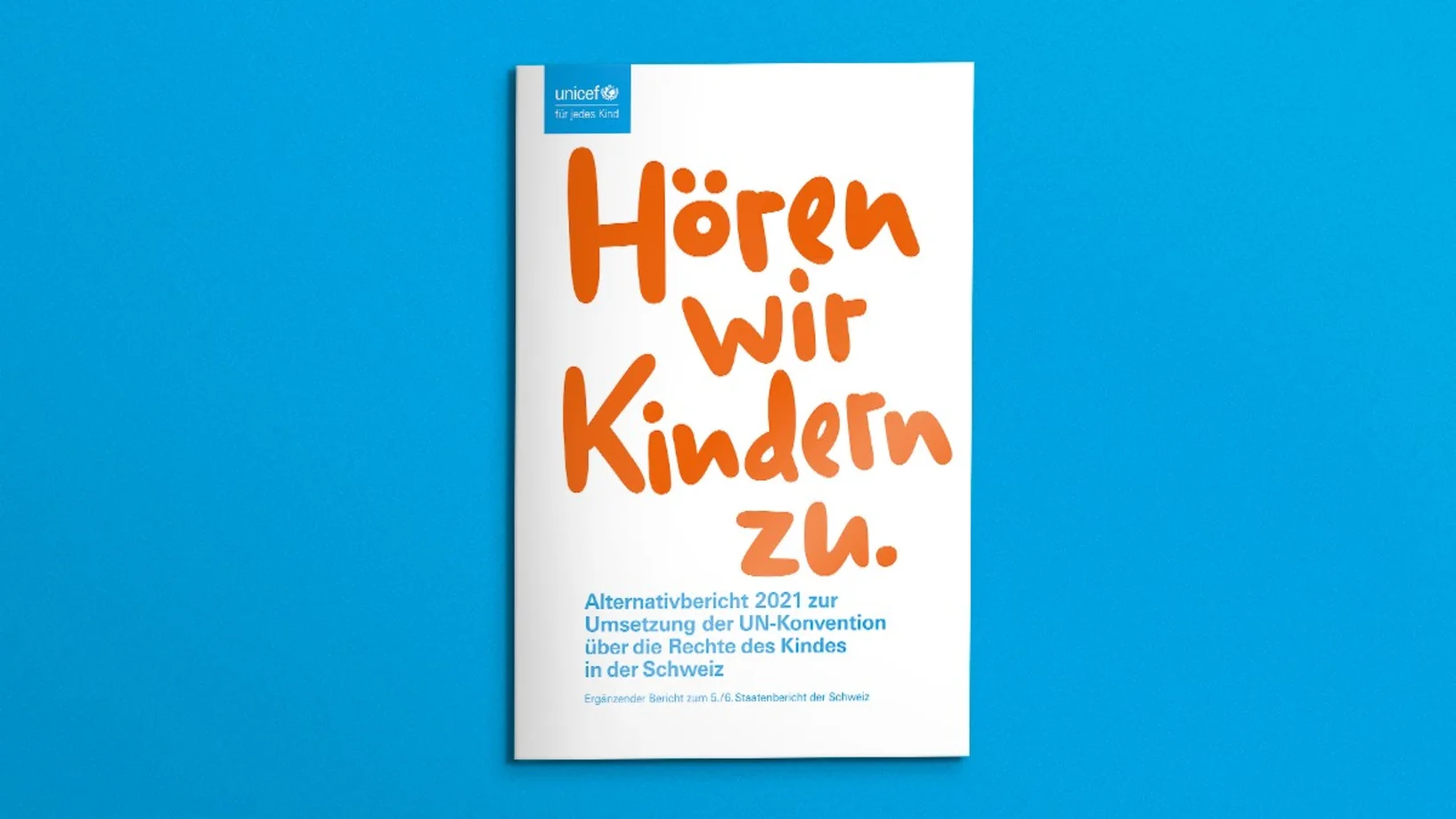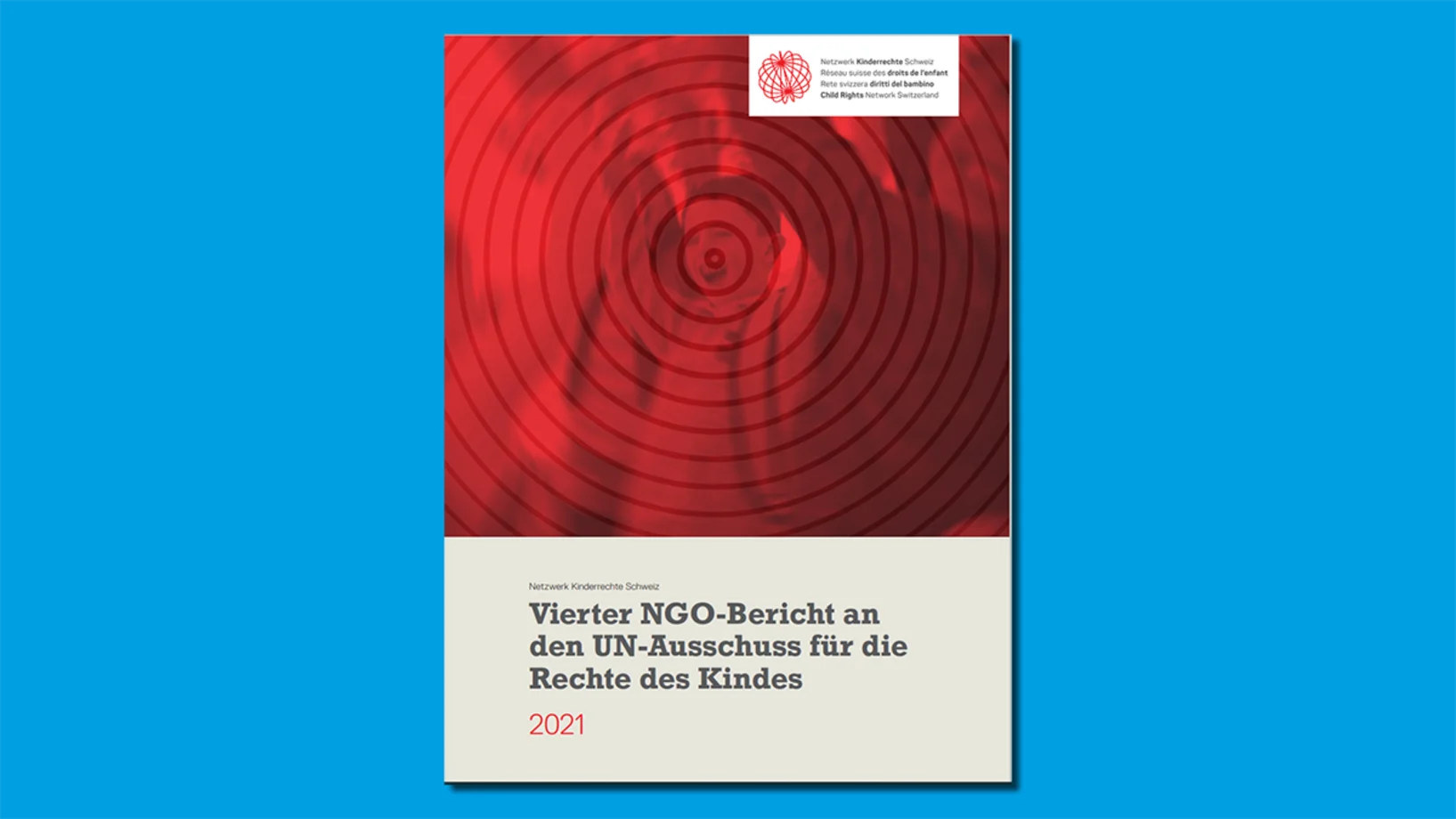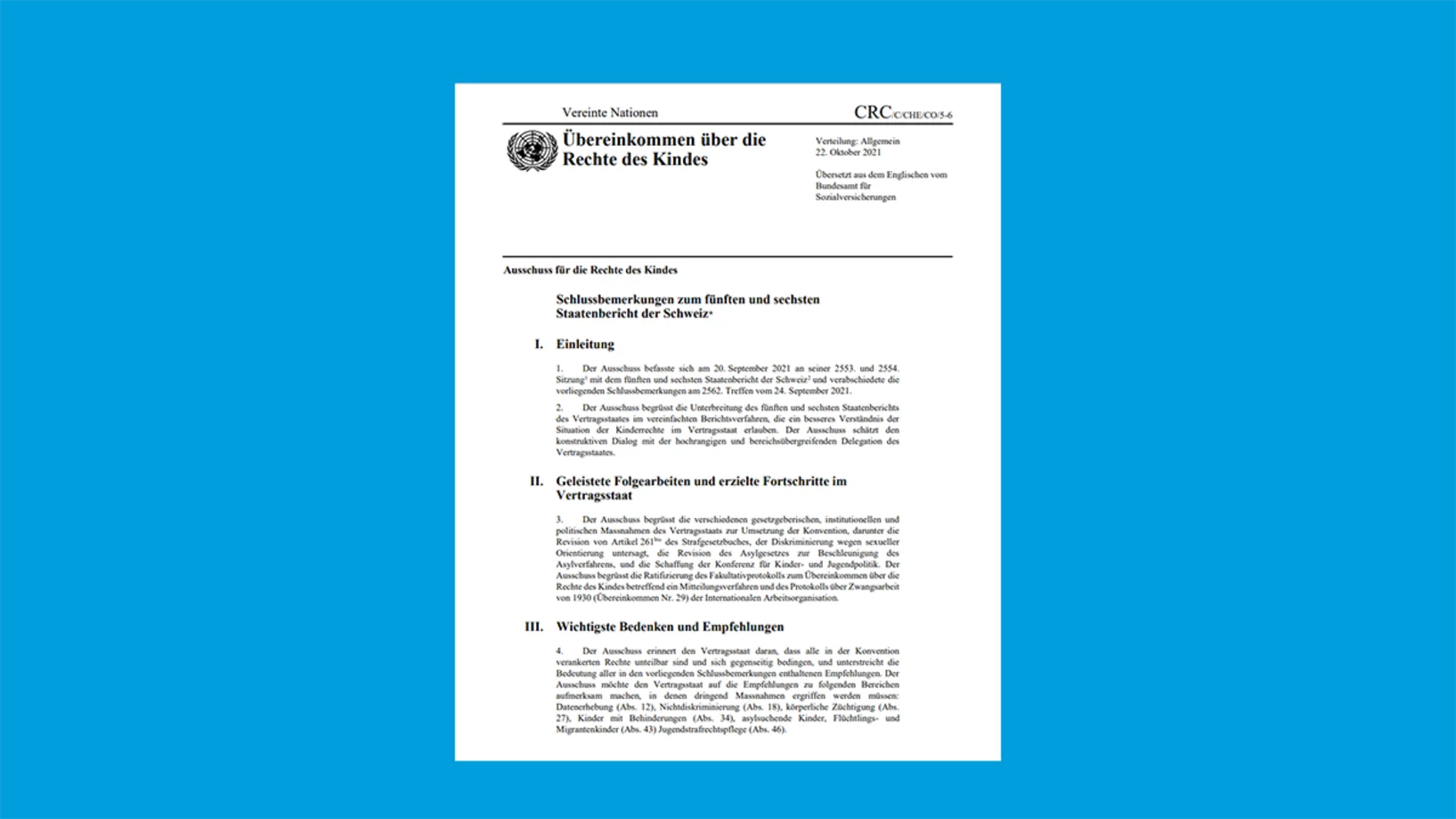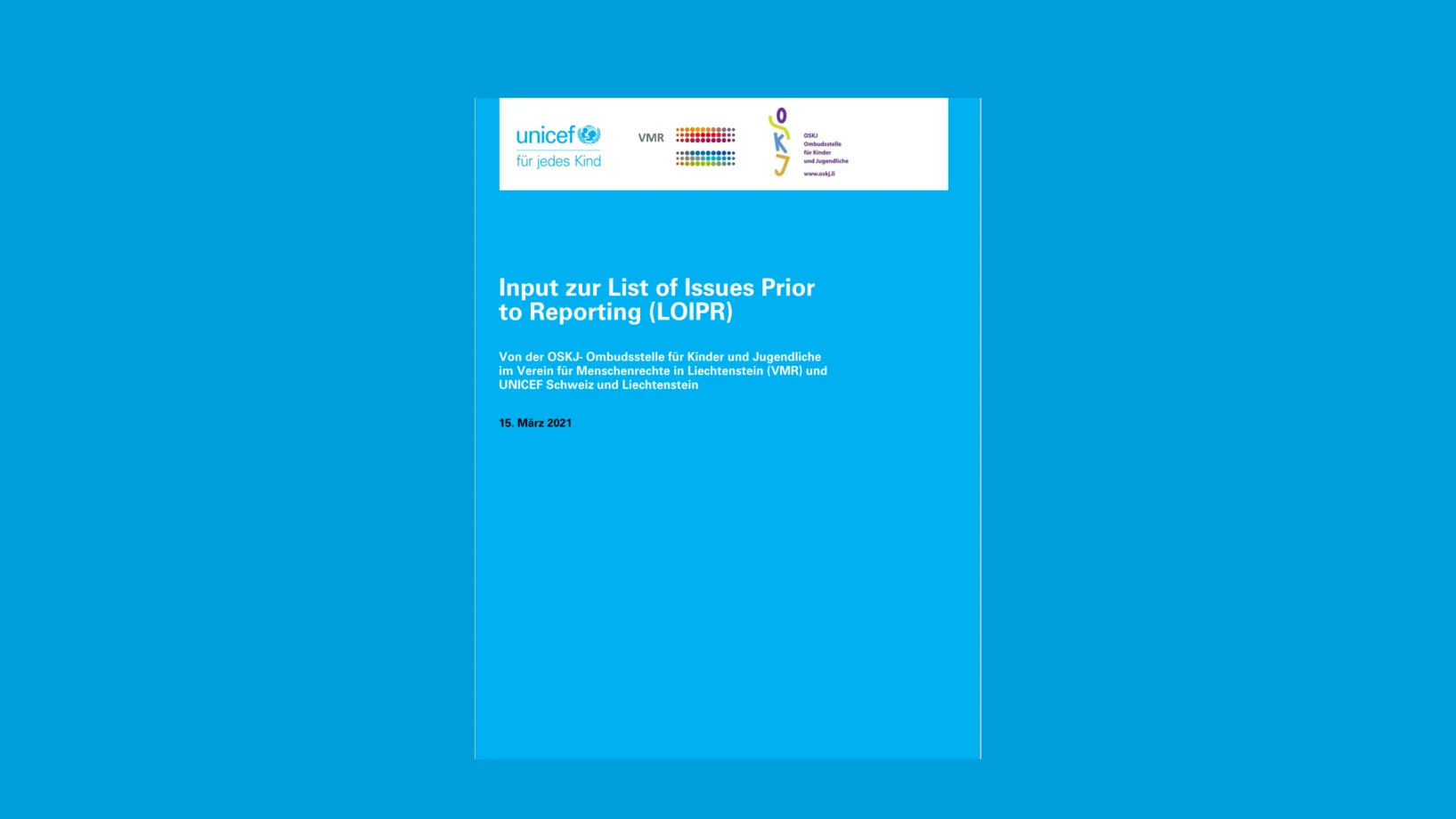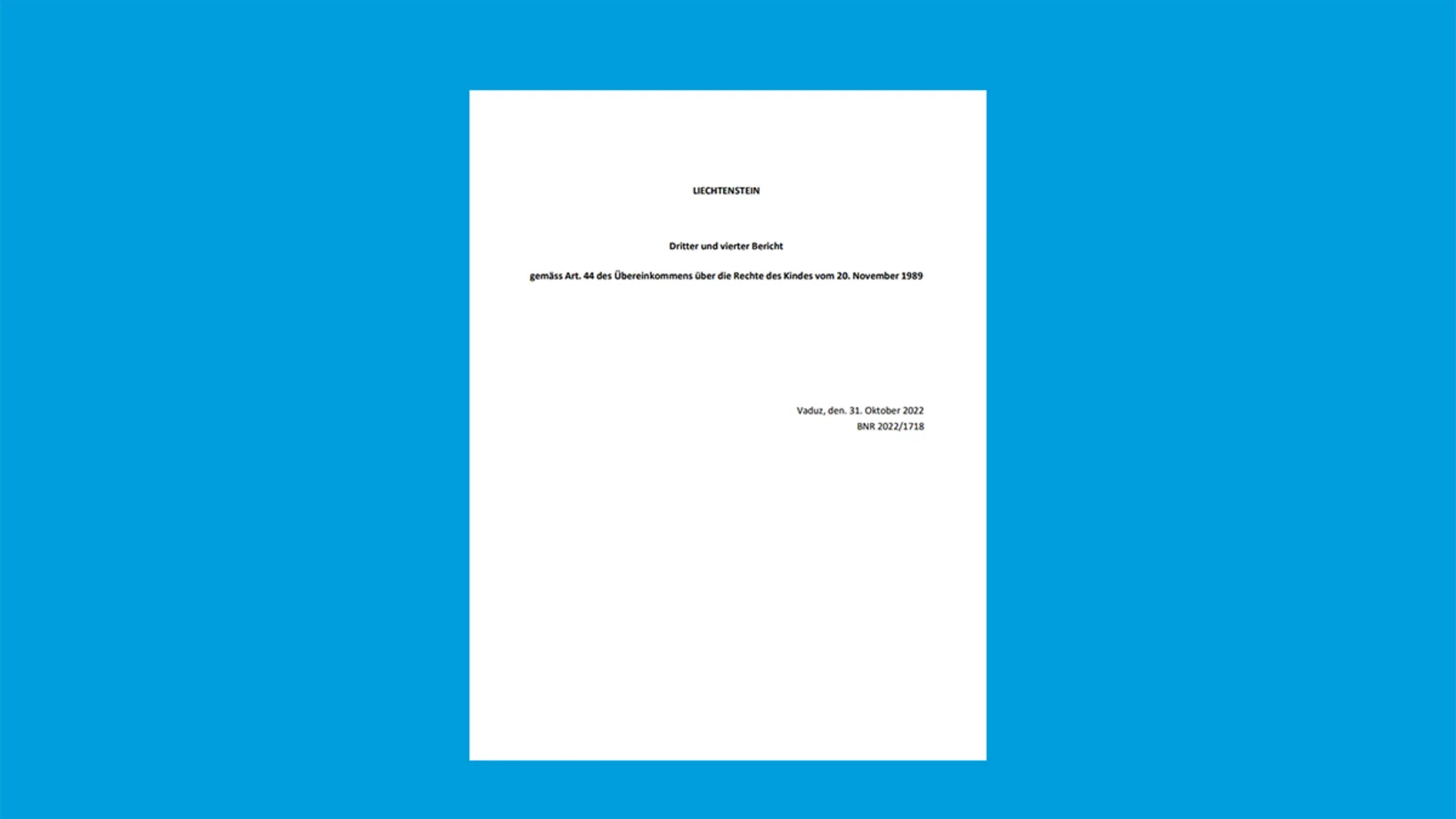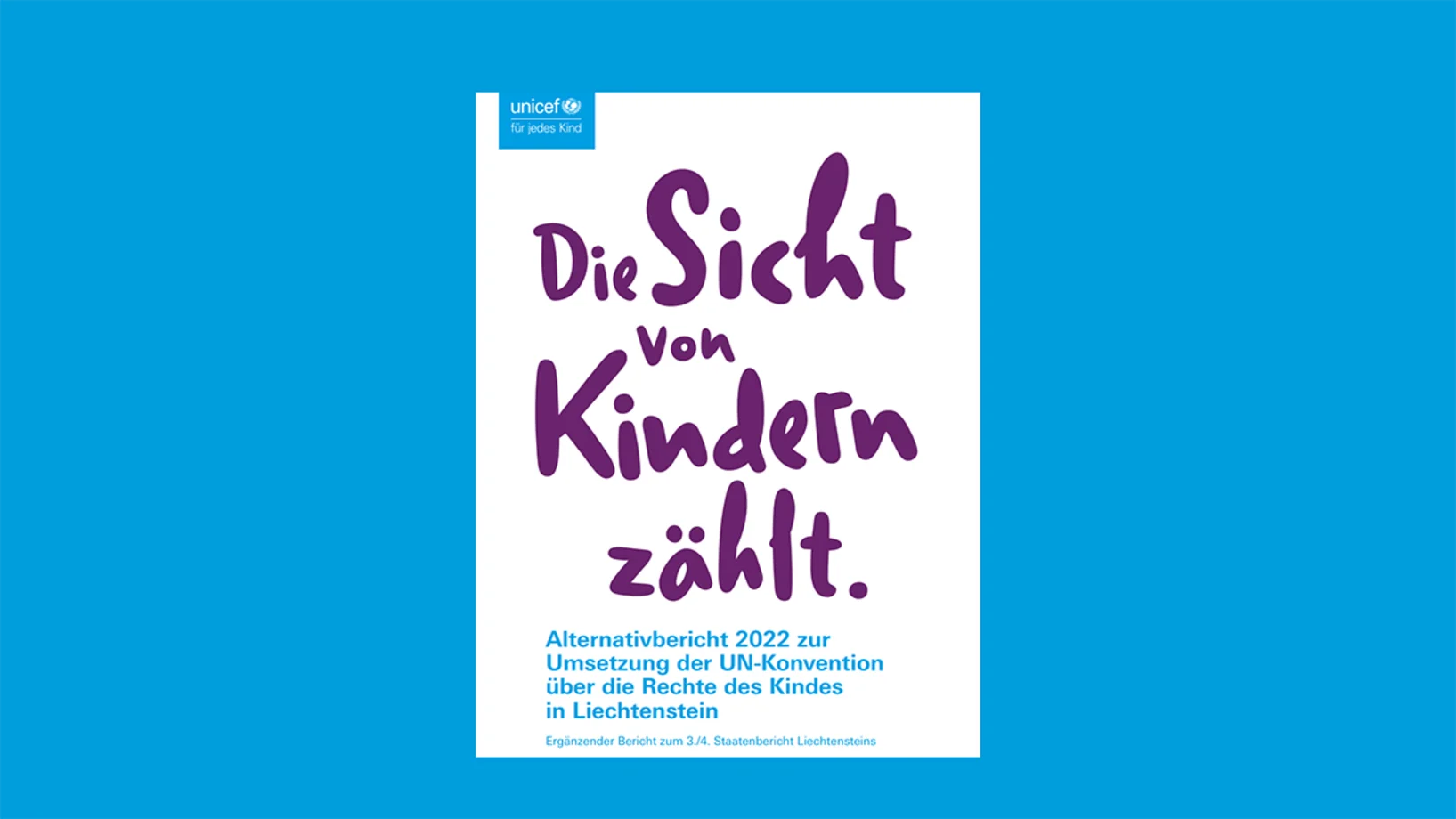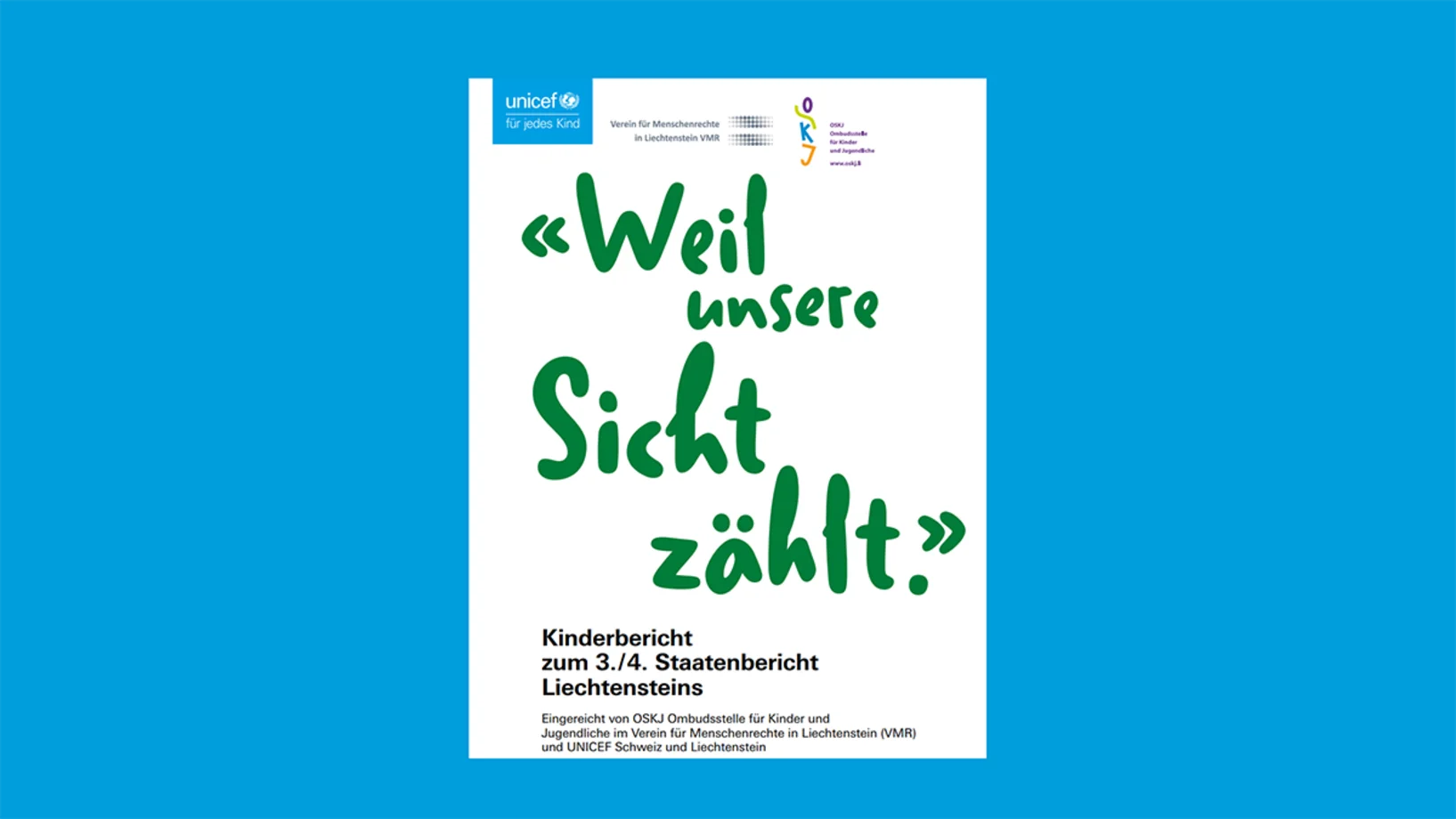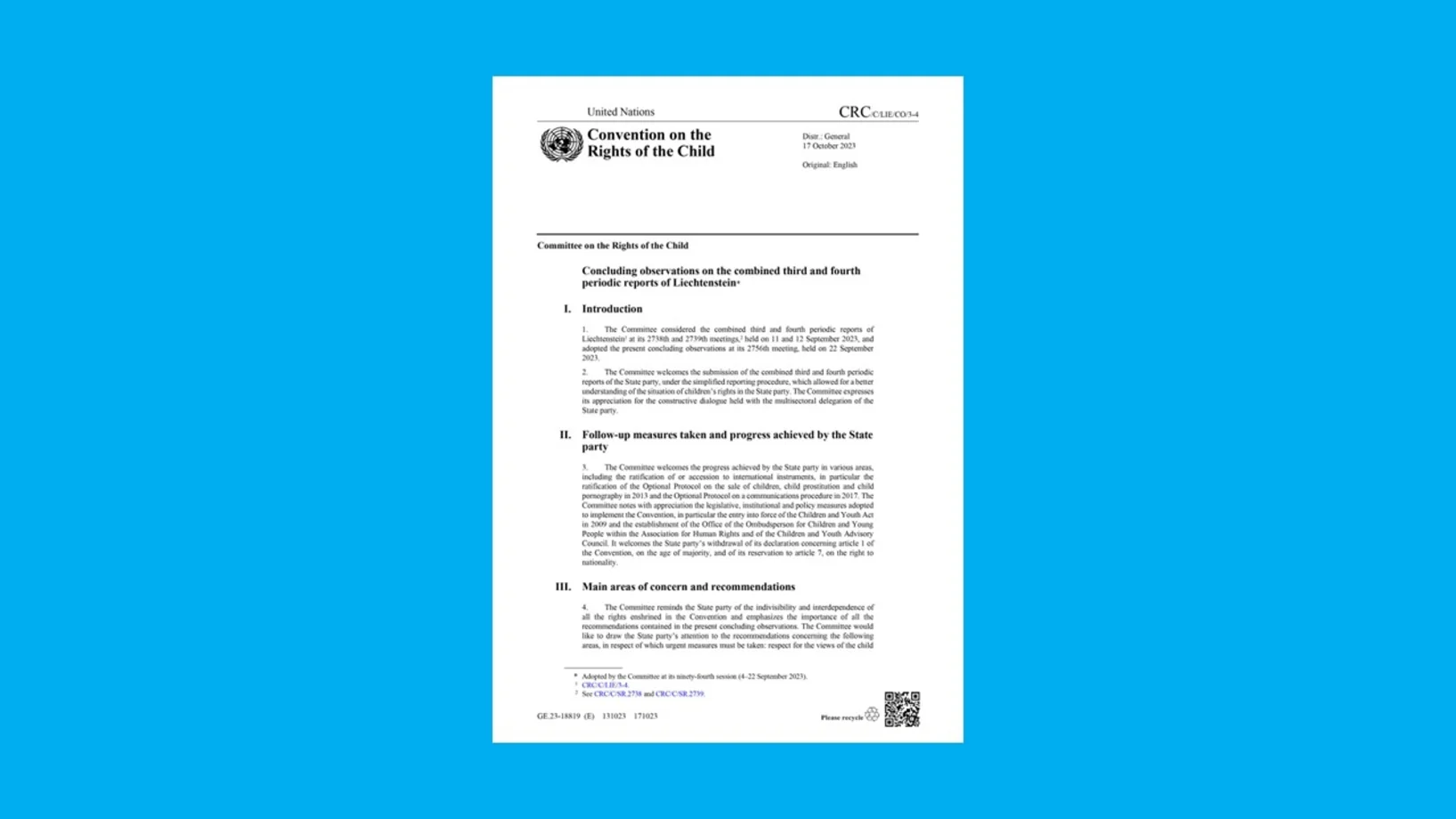The United Nations adopted the Convention on the Rights of the Child (CRC) in 1989. To date, this treaty has been signed by 196 Member States, making it the most ratified international treaty on children’s rights. By ratifying the Convention, Switzerland and Liechtenstein are obliged under international law to implement children’s rights and report on their progress.
How the implementation of children’s rights is monitored
In addition to the rights of children and young people, the Convention on the Rights of the Child also specifies how the review process for the implementation of children’s rights, known as the States parties’ reporting procedure, should proceed. This procedure takes the form of a cycle that starts from scratch every five years.
It highlights progress and setbacks, creates international comparability and reminds decision-makers of their obligations.
The following elements are especially important:
Under Article 44 of the Convention on the Rights of the Child, States parties must submit a report every five years. In this State party’s report, a country’s government informs the UN Committee on the Rights of the Child in Geneva about its progress but also about any challenges and gaps in the implementation of children’s rights.
Civil society can contribute its view on the children’s rights situation in its country in the form of an alternative, NGO or complementary report.
Children have the opportunity to set out the implementation of children’s rights from their perspective, either as part of the alternative report or as a separate contribution. Their wishes and concerns can be shared with the Committee in the form of a written report, peer research, a film, case studies, illustrations, posters or in other ways.
In addition to the reports, the Committee on the Rights of the Child meets with and puts questions to representatives of both civil society and the State party.
Finally, the UN Committee on the Rights of the Child formulates its concluding observations and recommendations to the respective State party to further advance the implementation of children’s rights.
Since 2019, the States parties’ reporting procedure has been conducted by means of a simplified reporting procedure. Prior to preparing its report, the State party in question receives a list of questions known as the “List of issues prior to reporting (LOIPR)”. This list contains up to 30 questions on specific topics. The aim is to improve the quality and focus of States parties’ reports.

“The active participation of civil society in the States parties’ reporting procedure is invaluable to the UN Committee on the Rights of the Child. It provides a fundamental opportunity to systematically assess the impact of state measures aimed at ensuring compliance with the CRC.”
Our commitment at UNICEF Switzerland and Liechtenstein
We regularly advocate for all children and young people in Switzerland and Liechtenstein as part of the States parties’ reporting procedure. This also involves working with partner organizations. We draft alternative and children’s reports and participate in both the pre-session and the plenary session.
The concluding observations of the Committee on the Rights of the Child to Switzerland and Liechtenstein are an important basis for our work.
The implementation of children’s rights in Switzerland
Switzerland has now completed the States parties’ reporting procedure for the third time. The UN Committee on the Rights of the Child again identified a number of problem areas for children and young people, but also defined 138 concrete recommendations for Switzerland in order to guarantee children’s rights for all children and young people. Switzerland is currently in the procedure for the fourth time.
As a member of the «Child Rights Network Switzerland», we are involved in the state report procedure within the network.
The children’s rights situation in Liechtenstein
Liechtenstein has gone through the third cycle of the States parties’ reporting procedure.
UNICEF actively participated by providing input to the Committee’s list of questions, drafting the alternative and children’s reports, and taking part in the pre-session in order to once again highlight existing challenges and gaps in the implementation of the CRC. The Committee on the Rights of the Child conducted its review of Liechtenstein during its 94th session in September.
In Liechtenstein, we are working closely with the Ombudsman’s Office for Children and Young People (OSKJ).
Your contact
Nicole Hinder

UNICEF Children’s Rights Newsletter
Our Children’s Rights Newsletter keeps you up to date about our work in Switzerland and Liechtenstein and about other exciting events and projects.
